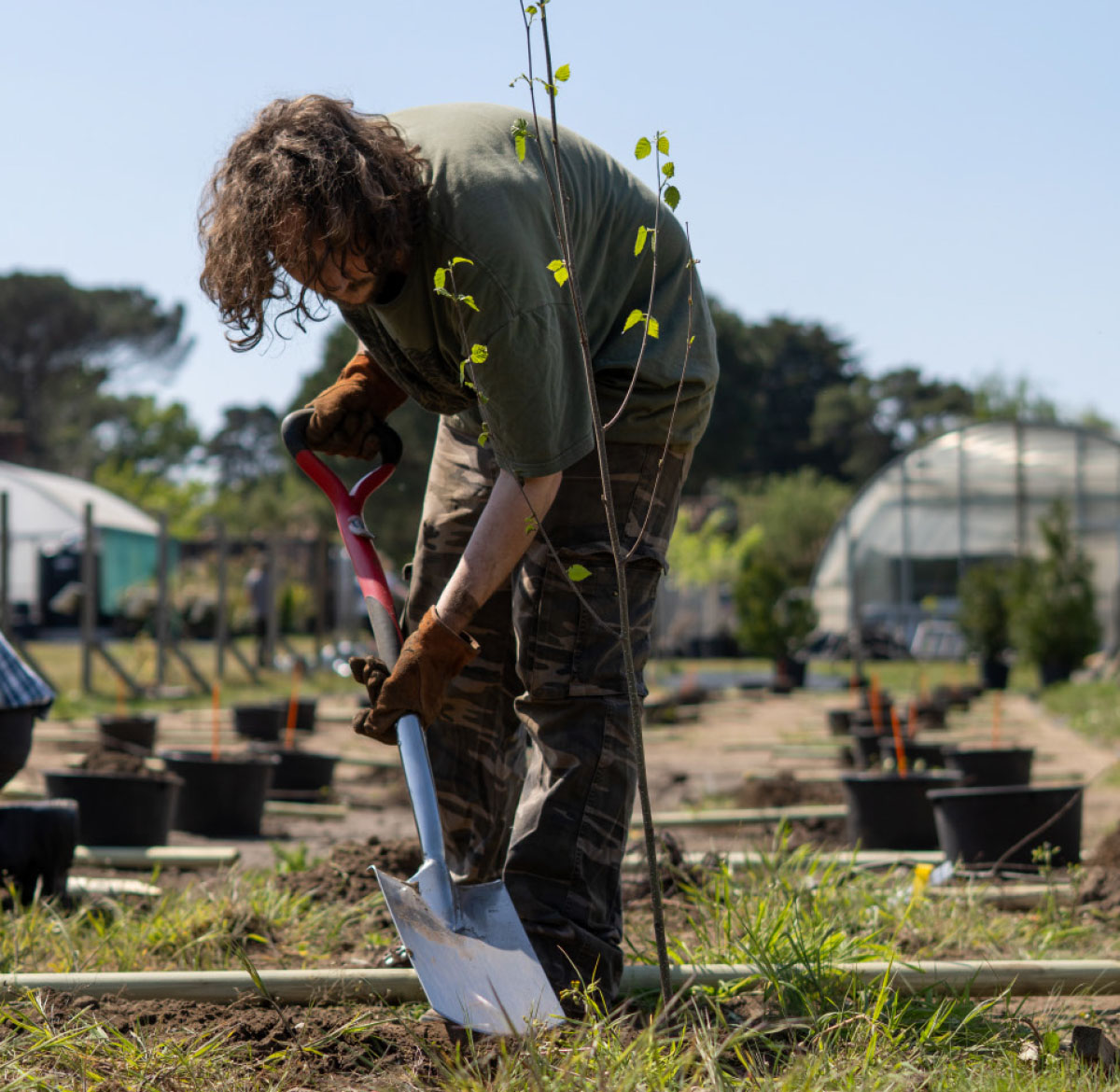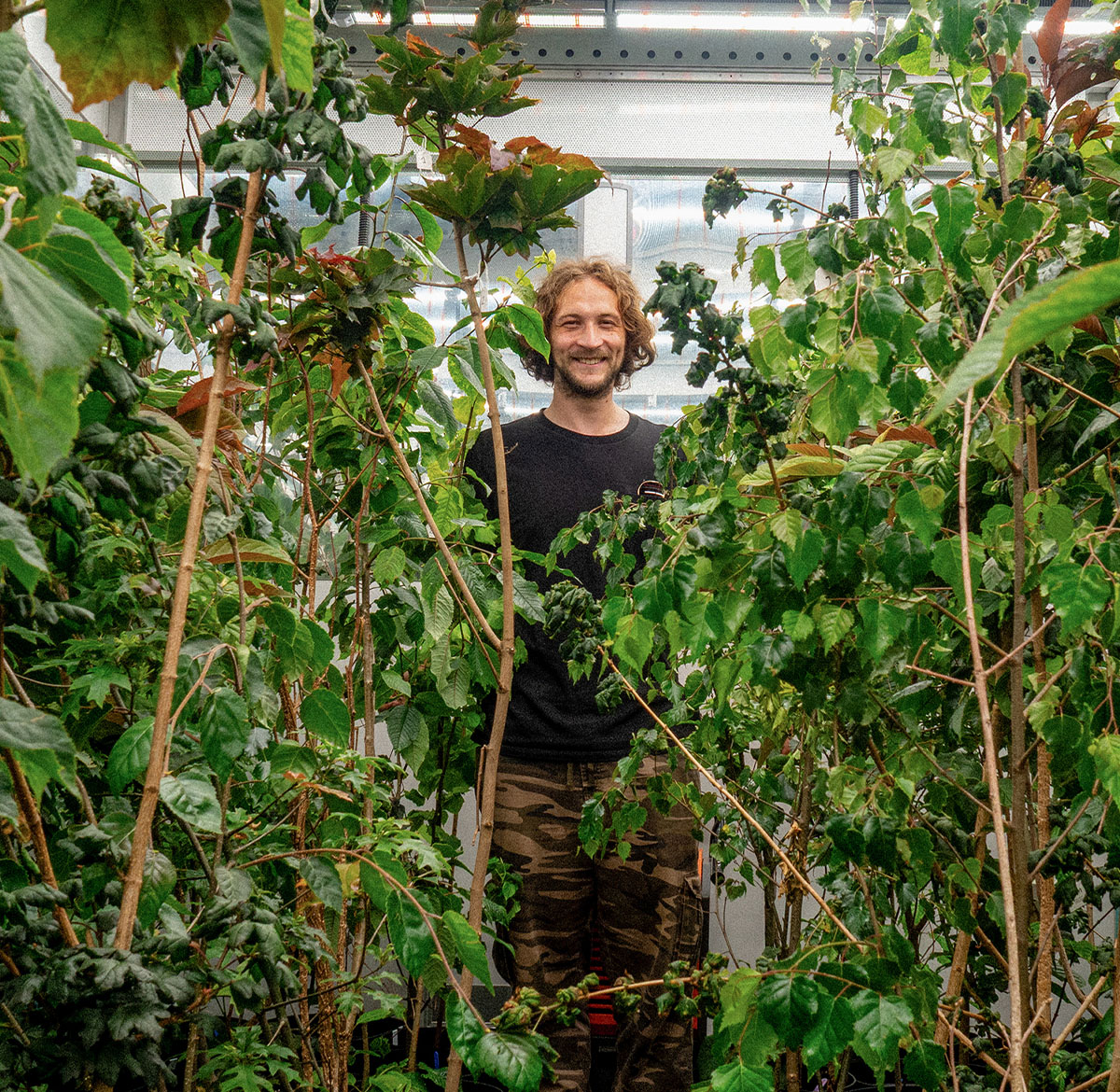Research & development
Greenwood is funding innovative carbon research to inform sustainable landscape design.
At Greenwood, we believe that Every Plant Matters, and we are working to drive environmental change across our industry. In partnership with the Royal Horticultural Society and Sheffield university, we are funding pioneering research into carbon accounting of nursery grown plants and trees.
Study
The research study analyses the above and below ground carbon content of British native species at different points in their life cycle. It will build a data model to quantify their carbon service potential over time; comparing the performance of trees in today’s climate compared with the expected temperatures of 2045.
Leadership
The project is the result of a partnership between Greenwood, the Royal Horticultural Society, and Sheffield University, and is led by PhD student Louis Kosowicz. The research is being supervised by Professor of Ecosystem Sustainability Jill Edmondson, and RHS Head of Environmental Horticulture Dr Mark Gush.
Aim
Despite being one of the biggest factors in mitigating climate change, there is a gap in knowledge when it comes to accurately accounting for the carbon sequestration of plants and trees. By funding this innovative research, we aim to develop a greater understanding of the carbon dynamics and long-term benefits of specific cultivars of plants, providing valuable data to inform sustainable landscape design.
Methodology
The research combines both field and controlled experiments to measure carbon storage with precision. At RHS Garden Wisley, trees and shrubs are being grown and harvested at set intervals to assess how their above and below ground carbon changes throughout their life cycle. This helps quantify how carbon storage develops over time in real-world conditions. In parallel, climate-controlled growth chambers at the University of Sheffield simulate both present-day and future climate conditions. Here, young trees are monitored for growth, photosynthesis, and leaf traits, revealing how rising temperatures and CO₂ levels could affect their carbon capture potential. Advanced instruments, such as the Li-Cor 6800, are used to measure photosynthesis and gas exchange, while detailed biomass analysis records how carbon is distributed between roots, stems, and leaves. The data will allow the team to build a detailed and predictive model of each species’ carbon dynamics.


Progress
The project is nearing its first year of completion, with early trials showing promising results. The first phase of growth monitoring and carbon measurement has been completed, and initial data collection from RHS Wisley is in progress. Despite a challenging first summer with periods of high temperatures, the young trees have responded well, offering valuable insights into how species adapt to environmental stress. As the study continues, data from both field and laboratory experiments will be combined to refine the predictive carbon model, paving the way for more informed, sustainable planting decisions across the landscape industry.
Next steps
The next stage of the research will expand beyond trees to include shrubs and hedgerows, which play a major role in carbon storage but are often overlooked in existing data models. By studying a wider range of plant types, the project will provide a fuller understanding of the contribution made by all forms of green infrastructure.
Further climate chamber trials will explore how plants adapt to long-term changes in temperature and carbon dioxide levels, offering insight into how future climate scenarios may affect growth and carbon dynamics.
As results are analysed, the findings will be used to create practical guidance and data tools for the landscape industry. These tools will help designers, developers, and local authorities choose species with proven long-term carbon benefits, ensuring that every planting decision contributes to a more resilient and sustainable environment. Ultimately, the research aims to translate scientific discovery into real-world impact, helping landscapes across the UK deliver stronger climate outcomes through better-informed planting.

